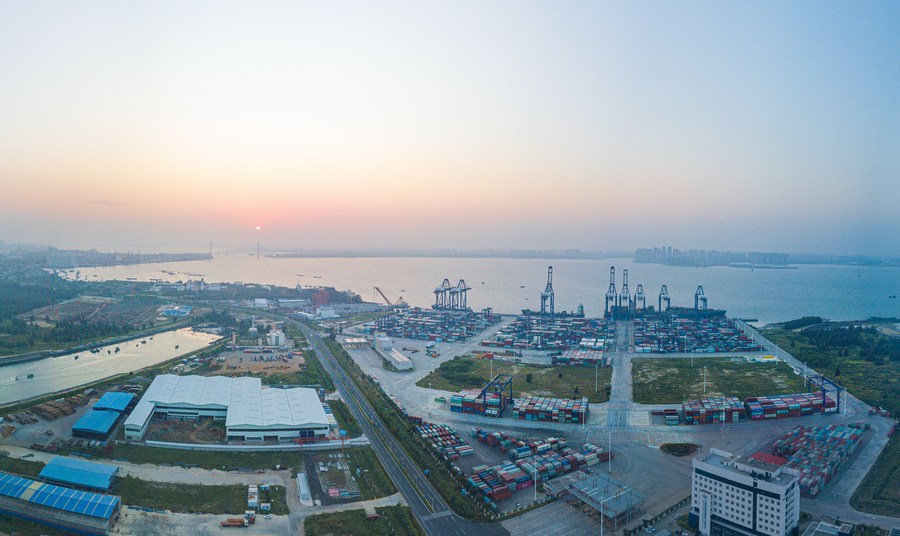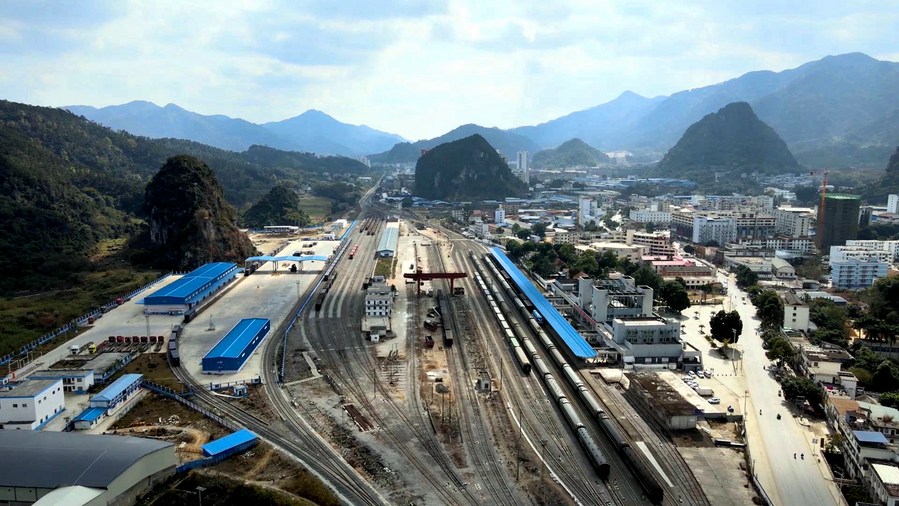China's promotion of free trade significant to development of world markets -- Japanese researcher

Aerial panoramic photo taken on Sept. 25, 2022 shows the Yangpu international container port at Yangpu economic development zone, south China's Hainan Province. (Xinhua/Pu Xiaoxu)
In recent years, China has continued widening market access and shortening the negative list for foreign investment. It has put into force laws and regulations, including the Foreign Investment Law, to protect foreign investors' legitimate rights and interests.
TOKYO, Oct. 26 (Xinhua) -- China's open market has attracted the world's participation and China's promotion of free trade is significant to the sound development of markets around the world, Japanese researcher Kiyoyuki Seguchi has said.
China's active participation in free trade is of great significance because China's presence plays a very important role in the world, Seguchi, research director at Japan's Canon Institute for Global Studies, told Xinhua in a recent interview.
China's open market has attracted talents, capital and technology from different parts of the world. Considering the strong link between the Chinese economy and the global economy is an increasingly important subject facing every country, Seguchi said.
The researcher encouraged young Japanese to go to China to experience the world's most dynamic market and face the challenge of vigorous competition.
In recent years, China has continued widening market access and shortening the negative list for foreign investment. It has put into force laws and regulations, including the Foreign Investment Law, to protect foreign investors' legitimate rights and interests.
China also adheres to the right course of economic globalization. It is committed to working with other countries to foster an international environment conducive to development and create new drivers for global growth.
Against the backdrop of the sluggish world economic growth caused by the COVID-19 pandemic, China has been able to maintain stable economic growth, Seguchi said, adding that the large scale of China's GDP means the development of the Chinese market has a huge impact on Japan, Europe, the United States and other economies.
China's GDP grew 3.9 percent year on year to 30.76 trillion yuan (about 4.32 trillion U.S. dollars) in the third quarter, 3.5 percentage points higher than that in the second quarter, data from the National Bureau of Statistics (NBS) showed Monday.

Aerial photo taken on Aug. 14, 2022 shows a railway freight center in Pingxiang City, south China's Guangxi Zhuang Autonomous Region.(Xinhua/Huang Xiaobang)
China's GDP has come to account for 18.5 percent of the world economy, up 7.2 percentage points over the past 10 years. The world's second largest economy has become a major trading partner for over 140 countries and regions, leading the world in the total volume of trade in goods.
The Regional Comprehensive Economic Partnership (RCEP), which groups China and 10 members of the Association of Southeast Asian Nations (ASEAN) as well as Japan, South Korea, Australia, and New Zealand, is the world's largest free trade deal to date.
The RCEP represents an important platform for promoting economic cooperation in the region and contributing vitality to world economic development and boosted economic growth in emerging countries.
Since the RCEP's entry into force in January, the level of trade and investment liberalization and facilitation has been markedly raised in East Asia, and the region's business environment has seen continuous improvement with growing confidence in economic recovery.
Trade between China and the other 14 RCEP members reached 8.32 trillion yuan (about 1.20 trillion dollars) in the first eight months of this year, accounting for 30.5 percent of China's total foreign trade, according to data released by the Chinese government in September.


